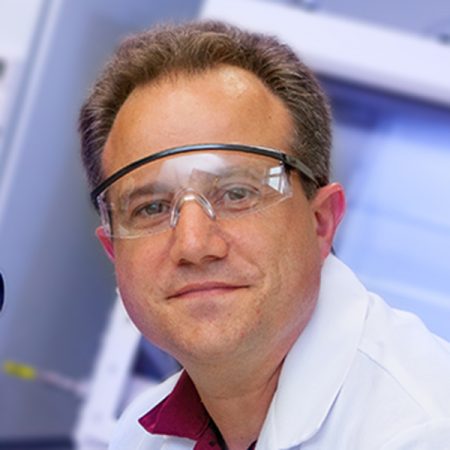
A Florida State University professor and his former graduate student have won the prestigious Nobel Laureate Signature Award for Graduate Education in Chemistry for their work studying the little-known element californium.
Florida State Gregory R. Choppin Professor Thomas Albrecht-Schmitt and his former graduate student Matthew Polinski, now an assistant professor of chemistry at Bloomsburg University of Pennsylvania, received the award from the American Chemical Society (ACS) in recognition of Polinski’s doctoral dissertation research under Albrecht-Schmitt’s supervision. That thesis work became a major part of a paper Albrecht-Schmitt authored in Nature Chemistry — with Polinski as a co-author — on the element californium.
Californium is a man-made, radioactive element known as Cf on the Periodic Table of Elements. It is also part of what’s called the actinide series, a part of the periodic table where all of the elements are radioactive.
It is a wildly unstable element, but Albrecht-Schmitt’s team was able to show that it had very unusual chemistry, marking the beginning of a new type of chemistry not previously observed. They also found it was extremely resistant to radiation damage, which could further research on how to develop materials for storing radioactive elements.
Polinski’s work was a key part of that discovery.
“Our research uncovered significant differences in the chemical behavior of mid to late actinides that we hope can be exploited both in the development of new recycling methods and advanced materials for storing radionuclides,” Polinski said. “Our findings also directly challenge many longstanding models of chemistry deep in the periodic table.”
The work stands out for another reason though.
“This is work that could only be done here at Florida State, period,” Albrecht-Schmitt said.
According to Albrecht-Schmitt, the lab at FSU is uniquely designed to handle radioactive elements such as californium. No other university lab in the country is equipped for conducting experiments such as these to show the element’s abilities to bond and handle radiation exposure, he added.
The ACS announced the award today in Chemical & Engineering News and will recognize Albrecht-Schmitt and Polinski during a ceremony next spring. The award is one of the few nationally that honor both a student and his or her mentor for work they collaborated on leading to a student’s dissertation. Most awards for research are given only to professors.
“I really like that it recognizes both of us,” Albrecht-Schmitt said.
Polinski said he was “honored and humbled” to be recognized by the ACS.
“Without the support and guidance of a top-notch research adviser and the help of an astute research team, none of this would have been possible,” he said. “I am very fortunate to have worked alongside a world-class group of colleagues.”




